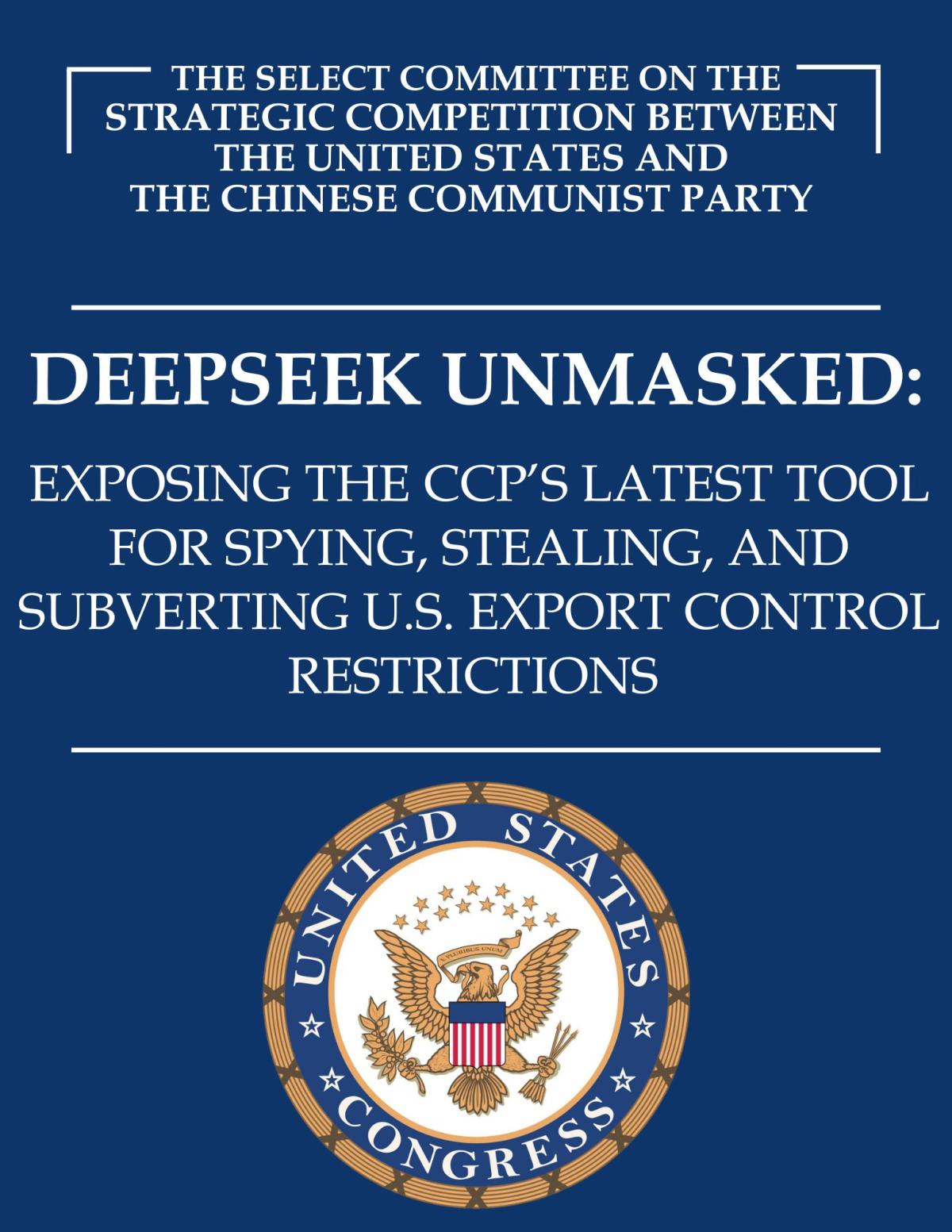Deepseek Unmasked: Exposing the CCP's Latest Tool For Spying, Stealing, and Subverting U.S. Export Control Restrictions

EXECUTIVE SUMMARY
“Some in the industry have claimed that the U.S. holds an 18-month AI lead, but that obfuscates reality—it’s closer to three months.” – U.S. AI Executive
DeepSeek represents a profound threat to our nation’s security. Although it presents itself as just another AI chatbot, offering users a way to generate text and answer questions, closer inspection reveals that the app siphons data back to the People’s Republic of China (PRC), creates security vulnerabilities for its users, and relies on a model that covertly censors and manipulates information pursuant to Chinese law. Equally troubling, the model appears to have been built using stolen U.S. technology on the back of U.S. semiconductor chips that are prohibited from sale to China without an export license and when it was released, PRC-affiliated social media accounts amplified and celebrated the model, according to Graphika research. This report documents some of the risks DeepSeek poses and explains how its development is based on common Chinese Communist Party (CCP) tactics designed to unlawfully undermine U.S. technological leadership and critical American policies to protect national security.
The Committee’s investigation found:
- DeepSeek funnels Americans’ data to the PRC through backend infrastructure connected to a U.S. government-designated Chinese military company.
- DeepSeek covertly manipulates the results it presents to align with CCP propaganda, as required by Chinese law.
- It is highly likely that DeepSeek used unlawful model distillation techniques to create its model, stealing from leading U.S. AI models.
- DeepSeek’s AI model appears to be powered by advanced chips provided by American semiconductor giant Nvidia and reportedly utilizes tens of thousands of chips that are currently restricted from export to the PRC.
The Committee therefore makes the following recommendations:
- Take swift action to expand export controls, improve export control enforcement, and address risks from PRC AI models.
- Prevent and prepare for strategic surprise related to advanced AI.